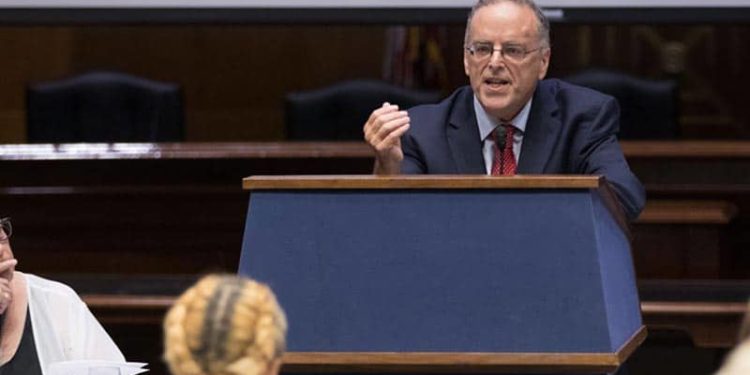On September 2, the U.S. Securities and Exchange Commission (SEC) will vote on proposed changes to its highly successful whistleblower program. These proposed changes have been highly controversial since first introduced in 2018. Whistleblower advocates have been vocal in warning that the proposed changes would greatly undermine the success of the whistleblower program, which would, in turn, harm investors. In a new piece in the National Law Review, Stephen Kohn, a partner in whistleblower law firm Kohn, Kohn & Colapinto, and Chairman of Board of Directors of National Whistleblower Center, outlines what exactly is at stake in the upcoming vote.
Kohn emphasizes the overwhelming opposition to the proposed changes. He notes that opponents of the proposed amendments range from whistleblower advocacy groups like the National Whistleblower Center to nationally recognized whistleblowers such as Sherron Watkins, to lawmakers like Senator Charles Grassley (R-IA), the leading Congressional expert on whistleblower laws.
Next, he details the six major proposed rule changes, including the three proposals he considers most detrimental to the whistleblower program. The first of these detrimental proposals would strip the SEC of the authority to sanction companies for retaliating against whistleblowers who raise concerns internally. In a previous piece, Kohn explained that “ensuring continued protection for internal whistleblowers can be fully accomplished under the existing regulatory and statutory provisions of the Sarbanes-Oxley Act.” The second detrimental proposed change would institute a “soft cap” that would allow the SEC to reduce whistleblower awards in most large cases. Kohn argues that this proposal would disincentive whistleblowers, particularly high-ranking highly-compensated executives, and undermine the deterrent effect of the program. The last of the detrimental proposed amendments would require whistleblowers to first file their concerns on the SEC Form TCR in order to be eligible for a reward. Kohn claims that it is the specification of ‘first’ that makes this proposal the most devastating to the whistleblower program. He explains that “because large numbers of whistleblowers initially have more informal contacts with the Commission prior to submitting a formal TCR complaint, the potentially devastating impact of this rule change cannot be underestimated. It would result in the presumptive (and in most cases the permanent) disqualification of numerous otherwise fully qualified whistleblowers who failed to “first” report frauds through the official TCR process.”
The SEC Whistleblower Program is highly effective as currently constructed. Kohn references a press release in which Jane Norberg, Chief of the SEC’s Office of the Whistleblower, recounts that “since the beginning of the program nearly ten years ago, the SEC has ordered more than $2.5 billion in financial remedies based on whistleblower information, including more than $1.4 billion in disgorgement and prejudgment interest, of which almost $750 million has been returned or is scheduled to be returned to harmed investors.” Kohn claims that “all of this progress is on-the-line.”
Kohn concludes his piece by stating: “taken together, the proposed rule changes could radically alter the entire SEC whistleblower program and create major disincentives and roadblocks to whistleblowers ever obtaining a reward. The real losers would be the harmed investors. If the proposed rules are enacted in their current form the only winners will be fraudsters on Wall Street.”


